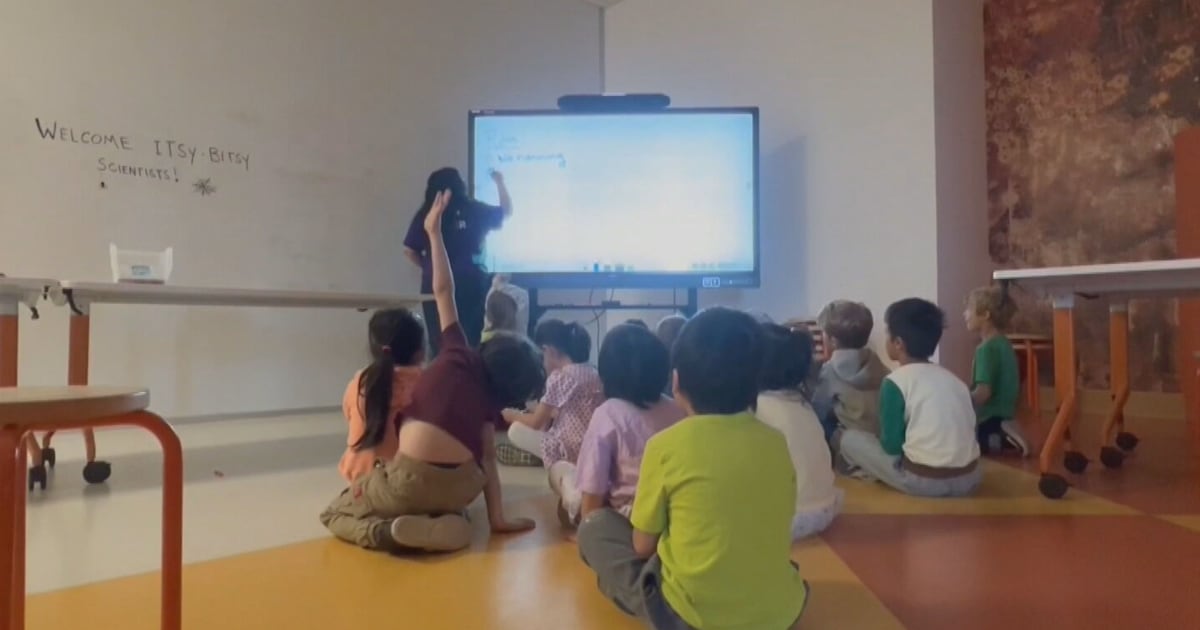Education
Families Seek Alternatives as Alberta Schools Face Extended Closure

Families in Alberta are actively searching for educational alternatives as schools remain closed due to ongoing negotiations between the province and the teachers’ association. With approximately 700,000 public and separate school students affected, many parents are exploring options such as temporary education camps to ensure their children continue learning during this disruption.
Education Camps Offer Temporary Solutions
Organizations across the province are stepping in to provide educational camps. One notable example is Telus Spark, which has developed programs designed to align with the standard science curriculum. “These SparkEd Camps are curricular-connected to their science curriculum. So, they are designed to enhance what they would be learning in the classroom,” explained Jen Duffy, the school science connections manager at Telus Spark.
While these camps offer a structured learning environment, they serve as a temporary placeholder for traditional schooling. Families are navigating the challenge of finding suitable options. “It’s a bit of an all-over-the-city tour as we find camps that work and that are available and that still have space,” said Kera Redlack, who enrolled her daughter Heidi at Telus Spark. “A lot of the camps that popped up were for children aged 10 and under, but Telus Spark has great options for kids up to 12.”
For children like Jordan, the transition to learning at home has proven difficult. “Mainly staying home and just working on schoolwork, but it is a little difficult to stay on track,” he shared.
Support for Teachers Amid Disruption
Parents are expressing their support for teachers amid the ongoing negotiations. “We 100 percent support the teachers. We want to see classrooms and education that is meaningful, empowering, and provides the right resources,” Redlack said. This situation, while necessary, is undeniably disruptive for families. The hope is that the schools will reopen soon.
Bargaining talks are scheduled to resume on March 5, 2024. Should an agreement be reached, teachers will need time to review it and conduct a vote, a process that historically takes about five days. This timeline raises concerns about the continuity of education for students.
“I want a good resolution for our students here in Alberta,” Duffy emphasized. The impact of class size on learning is also a point of concern for students. “I hope that the classrooms can get a little smaller because last year I had 32 kids in my class and it was way too big and loud,” said Heidi. Jordan added, “I just hope it ends soon because it is much harder to learn at home than it is at school.”
In the event that no agreement is reached, the provincial government may mandate teachers to return to their classrooms. This could result in a halt to extracurricular activities, including field trips. Duffy noted that many educators who have stepped in to assist at camps could find themselves in uncertain positions if they are required to return to traditional teaching.
As families adjust to the current educational landscape, the focus remains on providing quality learning experiences for students while supporting teachers in their efforts for better working conditions. The outcome of the negotiations will ultimately shape the future of education in Alberta.
-

 Education3 months ago
Education3 months agoBrandon University’s Failed $5 Million Project Sparks Oversight Review
-

 Science4 months ago
Science4 months agoMicrosoft Confirms U.S. Law Overrules Canadian Data Sovereignty
-

 Lifestyle3 months ago
Lifestyle3 months agoWinnipeg Celebrates Culinary Creativity During Le Burger Week 2025
-

 Health4 months ago
Health4 months agoMontreal’s Groupe Marcelle Leads Canadian Cosmetic Industry Growth
-

 Technology3 months ago
Technology3 months agoDragon Ball: Sparking! Zero Launching on Switch and Switch 2 This November
-

 Science4 months ago
Science4 months agoTech Innovator Amandipp Singh Transforms Hiring for Disabled
-

 Education3 months ago
Education3 months agoRed River College Launches New Programs to Address Industry Needs
-

 Technology4 months ago
Technology4 months agoGoogle Pixel 10 Pro Fold Specs Unveiled Ahead of Launch
-

 Business3 months ago
Business3 months agoRocket Lab Reports Strong Q2 2025 Revenue Growth and Future Plans
-

 Technology2 months ago
Technology2 months agoDiscord Faces Serious Security Breach Affecting Millions
-

 Education3 months ago
Education3 months agoAlberta Teachers’ Strike: Potential Impacts on Students and Families
-

 Science3 months ago
Science3 months agoChina’s Wukong Spacesuit Sets New Standard for AI in Space
-

 Education3 months ago
Education3 months agoNew SĆIȺNEW̱ SṮEȽIṮḴEȽ Elementary Opens in Langford for 2025/2026 Year
-

 Business4 months ago
Business4 months agoNew Estimates Reveal ChatGPT-5 Energy Use Could Soar
-

 Technology4 months ago
Technology4 months agoWorld of Warcraft Players Buzz Over 19-Quest Bee Challenge
-

 Business3 months ago
Business3 months agoDawson City Residents Rally Around Buy Canadian Movement
-

 Technology2 months ago
Technology2 months agoHuawei MatePad 12X Redefines Tablet Experience for Professionals
-

 Business3 months ago
Business3 months agoBNA Brewing to Open New Bowling Alley in Downtown Penticton
-

 Technology4 months ago
Technology4 months agoFuture Entertainment Launches DDoD with Gameplay Trailer Showcase
-

 Technology4 months ago
Technology4 months agoGlobal Launch of Ragnarok M: Classic Set for September 3, 2025
-

 Technology4 months ago
Technology4 months agoInnovative 140W GaN Travel Adapter Combines Power and Convenience
-

 Science4 months ago
Science4 months agoXi Labs Innovates with New AI Operating System Set for 2025 Launch
-

 Top Stories2 months ago
Top Stories2 months agoBlue Jays Shift José Berríos to Bullpen Ahead of Playoffs
-

 Technology4 months ago
Technology4 months agoNew IDR01 Smart Ring Offers Advanced Sports Tracking for $169










